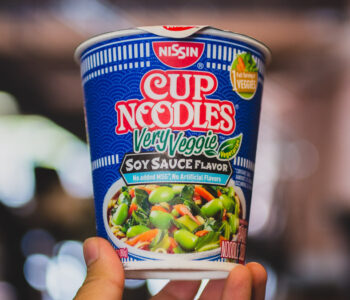 Industries
Industries
Expand into Japan’s Craft Beer Sector: Overview, Obstacles and…
By Samuel Arnold-Parra
In this article, we take a look at the trends and challenges that exist in Japan’s craft beer sector, and where the opportunities lie for collaboration.

Why Craft Beer?
Craft beer is increasingly popular on a global level. In the United States, arguably the home of the craft beer boom, the combined number of microbreweries and brewpubs increased from 1,459 in 2008 to 5,073 in 2020. In the United Kingdom, the number of live companies registered as ‘manufacturers of beer’ jumped from 34 in 2007 to 378 in 2017 according to Companies House, a nearly ten-fold increase. As of 2020, craft beer accounts for 12.3% of the United States’ beer market, whereas in the UK craft beer takes up around 5% of the market by volume. Of course, the growing popularity of craft beer is not limited to Europe or the United States.
Japan’s Craft Beer Sector: An Overview
Japan’s craft beer sector occupies a smaller niche than its American equivalent. As of July 2021, approximately 500 domestic microbreweries and brewpubs exist across the country. Underlining the dominance of major manufacturers like Asahi and Kirin in Japan’s beer market, craft beer makes up only around 1-2% of the market. Consequently, there is significant room for craft beer’s share of the market to grow. Japan’s major beer firms have recognized this potential; Kirin Holdings’ president, Isozaki Yoshinori, has stated his expectation that by 2026 craft beer’s share will rise to 3%, with the possibility of an increase to 5% of the market.
Kirin has also invested in a number of craft beer manufacturers. For example, Kirin agreed a capital tie-up with Yo-Ho Brewing Company, Japan’s largest craft beer brewer, in 2014. Moreover, Kirin made a more direct move into the craft beer sector by establishing the Spring Valley Brewery in 2015, a subsidiary focused on the development of microbrewery-style beers. Other major firms such as Sapporo and Suntory have also released craft-style brands in recent years, but Kirin remains the company most involved in Japan’s craft beer sector.

Challenges to Japan’s Craft Beer Sector
The greatest challenge which Japan’s craft breweries have faced in the last year is undoubtedly the consequences of the COVID-19 pandemic, such as a decline in tourism and various restrictions on restaurants. Because many Japanese craft breweries are closely tied to restaurants or tourist sites, COVID-19’s impact has placed many in a difficult situation. Small breweries with little name recognition or the means to leverage alternative distribution channels have been particularly affected. Conversely, larger breweries like the aforementioned Yo-Ho Brewing have not suffered to the same degree. In fact, in 2020 Yo-Ho Brewing’s sales of their flagship Yona Yona Ale increased by 33% from 2019.
Japan’s laws surrounding alcohol production also likely pose an obstacle to the development of Japan’s craft beer ecosystem. Under Japan’s current Liquor Tax Act, any beverage containing above 1% alcohol is defined as an alcoholic beverage; a license is required in order to legally produce alcoholic beverages. Barriers to homebrewers and small, enterprising microbreweries emerge given that a license will not be granted if the estimated quantity of beer to be produced one year after receiving the license does not exceed 60 kilolitres.
If legal home brewing were more viable in Japan, it is likely that Japan’s craft beer industry would benefit from a larger pool of experienced homebrewers, higher public awareness of different beer styles and the knowledge gleaned from homebrewers’ experimentation. The development of the craft beer industry in the United States, where home brewing has played a notable role, supports the notion that the growth of Japan’s craft beer industry would be boosted by changes to the Liquor Tax Act.
In the longer term, prospects for the growth of Japan’s craft beer sector are likely to be limited by the fact that, over the last 15 years, Japan’s beer market has been in consistent decline. Tax revenue on beer sales fell by approximately 22.7% between 2009 and 2019, based on data from Japan’s National Tax Agency. Though the shrinking of the market is likely to act as an upper limit on craft beer’s growth, craft beer has bucked the trend by continuing to grow despite the decline of the overall market. It is for this reason that firms like Kirin have been bullish on investment into the craft beer sector.

Opportunities for the Craft Beer Sector in Japan
COVID-19’s impact highlighted the value of diverse product distribution channels and has created opportunities for online retailers and the breweries which leverage them. In discussion with Kanazawa Toshimasa, CEO of Meuron, a firm which operates the craft beer delivery service Otomoni, Mr. Kanazawa stated that the number of Otomoni orders sent out following the announcement of Japan’s first COVID-19 State of Emergency in April 2020 increased by 3.5 times over the previous week. The popularization of online craft beer services like Otomoni is likely to enhance the public’s engagement with craft beer and provide an avenue for microbreweries to build up their customer base and brand recognition.
In 2018 gradual reforms to Japan’s alcohol tax system were announced which are likely to improve beer sales in general over the long term. Last year the first stage of the reforms came into effect, lowering the tax on beer by 7 JPY to 70 JPY per 350ml while simultaneously raising the rate for low-malt beer alternatives. This final stage of the reforms will come into force in 2026 and is likely to improve beer’s competitiveness against other alcoholic beverages by further lowering the tax rate.
An opportunity exists for both Japanese and overseas craft breweries in exporting their products to other countries. Given the Japanese public’s growing consciousness of craft beer and interest in foreign products, international producers may be able to benefit from the Japanese market’s growth with the right marketing and connections.
Likewise, enterprising Japanese microbreweries could benefit from the popularity of craft beer and Japanese products’ reputation in other countries to expand their market. Doing so would provide a way for these breweries to get around the limits of Japan’s shrinking market. Consequently, cooperation between Japanese and international firms in the craft beer sector holds substantial potential.
Let us know if you are a craft beer brand looking to enter or expand in the Japanese market, we would love to hear from you!
See also:
Ways to Break into Japan’s Organic Market
The AI Market in Japan: Spearheading Industry Innovation
Keep checking back or follow us on LinkedIn, Facebook or Twitter to get notified about our latest posts.
If you’d like to be featured on the Tokyoesque blog, either in the form of an interview or by writing a guest article related to the Japanese market, please get in touch.









